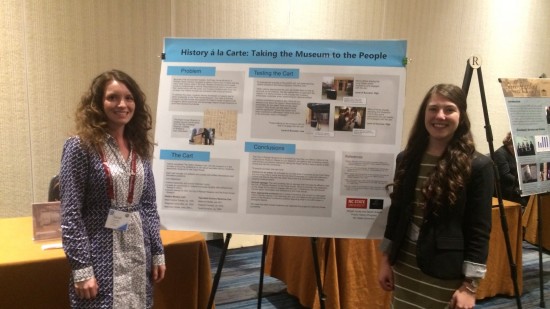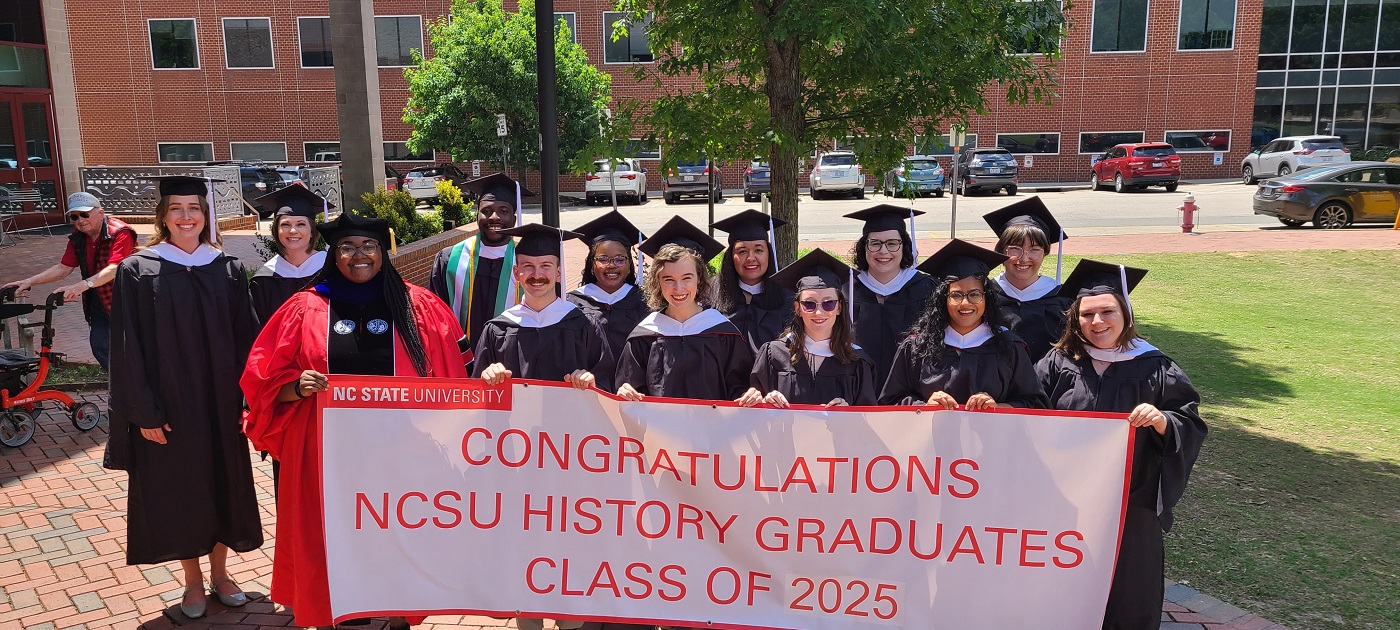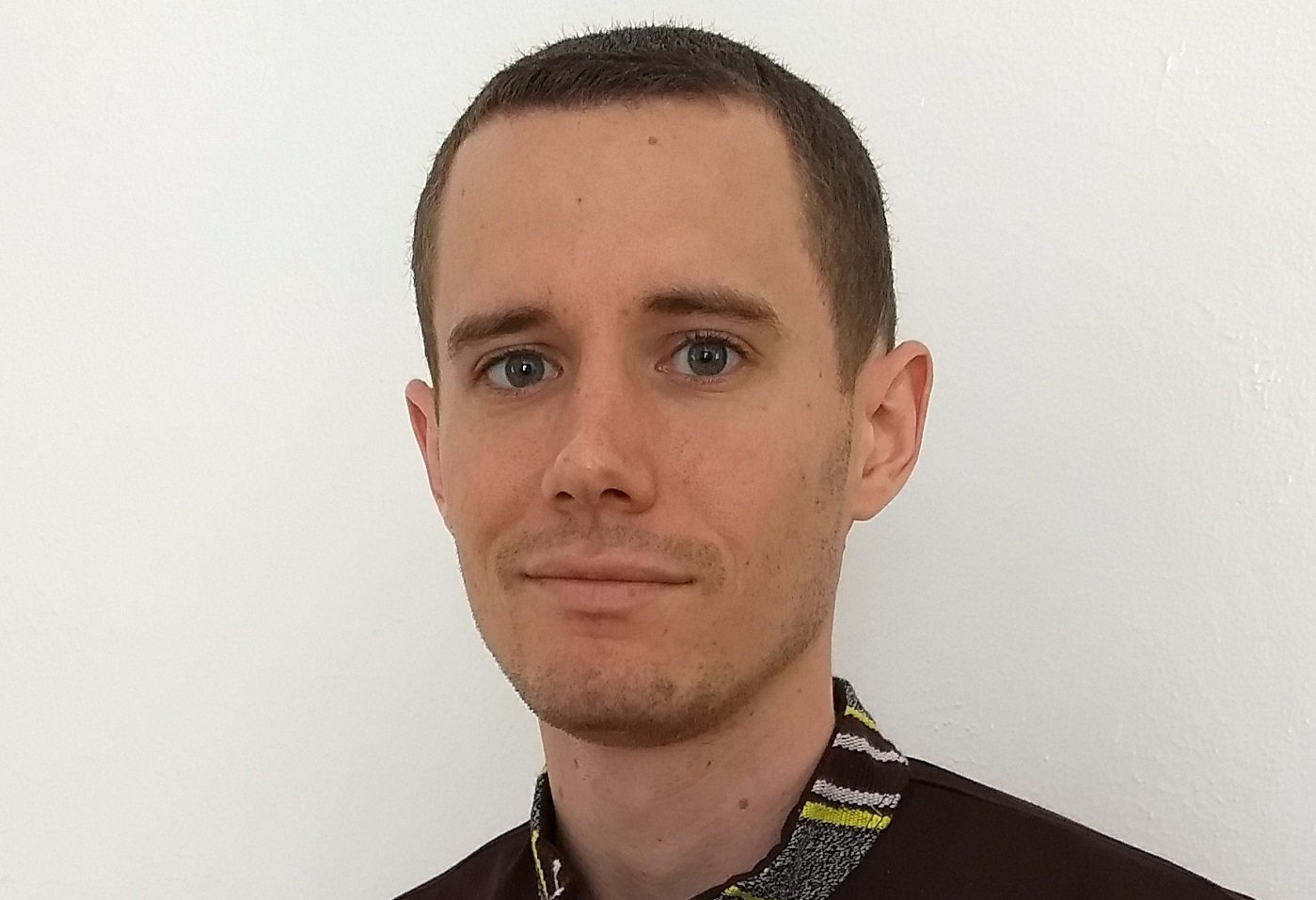Public History Graduate Students Attend the 2016 NCPH Annual Conference
In March, several graduate students in the Public History Program attended the 2016 Annual Meeting for the National Council on Public History in Baltimore, Maryland. The theme of the conference was “Challenging the Exclusive Past.” The conference’s sessions, panels, and workshops all revolved around discussions of what public historians can to do to expand and challenge local, state, national, and global narratives.
Below are some reflections from public history graduate students who attended the conference:
Presenting Research at the NCPH Poster Session by Abigail Jones

At the conference Sarah Soleim and I participated in the poster session. The title of our poster is “History a’la Carte: Taking the Museum to the People.” Inspired by the work during our internships at the City of Raleigh Museum and the Dr. M.T. Pope House Museum, the poster introduces the idea of the mobile museum cart on twentieth-century medicine. The cart was created as a way to attract visitors to both the City of Raleigh Museum and the Pope House Museum, by taking the story of Dr. Pope’s medical practice outside of the home and into community spaces.
Participating in the poster session was a great experience. This was the first time that either of us had presented in any form at a conference of this size, so it was a little intimidating at first. But the environment at the NCPH poster session was very supportive and so many people wanted to talk to us about our research, offer their own reactions and feedback, as well as ask us for advice on how they could implement the mobile museum cart at their own institution. I would encourage anyone who is interested to participate in the poster session, as it is a less-intimidating but very interactive forum to share your research with other public historians and graduate students.
Conference Networking by Sarah Soleim
The conference brought together a diverse group of students, academics, and professionals. I left especially inspired by my peers’ interesting and impressive work. I also enjoyed the presence of governmental historians. They often added refreshing perspectives on issues relating to project development and interpretation. Conference organizers and seasoned attendees created a welcoming environment for first-time attendees like me, and I made several connections at the conference that I hope to maintain. I encourage other students within our program to consider attending the conference next year.
Tweeting NCPH by Lisa Withers
I learned about live tweeting at my first NCPH conference and I decided to try it this year. I discovered that the process of condensing the main points of a session into 140 characters helped me to remember key aspects of the conversation. Additionally, live tweeting sessions provided a way to add new voices as fellow users responded to tweets and asked questions. Conversing on Twitter during sessions allowed me to virtually meet other conference attendees and to expand my professional network.
Using Twitter during NCPH also provided the opportunity to start pre-session conversations. For example, the #HistoryInMyImage twitter chat kicked off a series of panels on diversity within the organization and the public history field. After the conference ended, Twitter provided the raw material to create a record of the conversation via Storify. For example, see the summary of Session 29: Public Historians of Color panel.
Live tweeting illustrated how social media allowed conference attendees to share information and to follow the dialogue in concurring sessions. However, in-person networking remains an important aspect of conferences. Attending NCPH provided me the opportunity to meet my colleagues on the Professional Development Committee and to reconnect with fellow public historians. While Twitter cannot, and should not, replace face-to-face interaction, the social media site has the potential to change the way students can connect with practitioners in the field and to stay updated on critical conversations.
Additional storified tweets from the conference can be found here:
https://storify.com/BetterGuyX/getting-started
https://storify.com/anichellemitch/public-historians-of-color-s29-ncph2016
http://ncph.org/conference/2016-annual-meeting/conference-material/
Putting Public History to Work: Advocacy, Activism, and Social Justice by Megan Cullen
While the entire NCPH Conference proved enjoyable, I was most gratified by the sessions and events that discussed Public History’s engagement with social justice issues. In particular, the workshop Public History and Policing: Connect your Community to a National Memory Project on Incarceration and the Public Plenary The Uprising in Focus: The Image, Experience, and History of Inequality in Baltimore proved memorable. Public History and Policing offered a lengthy workshop on interpretations of incarceration, techniques for fostering community dialogue, and the current deficits of relevant scholarship. Specifically, representatives from the Humanities Action Lab of the New School (and their partners) discussed current projects, such as “States of Incarceration: A National Dialogue of Local Histories” and HAL Global Dialogues: “Mass Incarceration & Public Memory.” Attendees were encouraged to consider the benefits of Public History engagement with mass incarceration, primarily the exploration of local connections to larger national themes and narratives. This workshop was incredibly imaginative, provocative, and passionate- all of the elements that create valuable Public History. Similarly, the Public Plenary discussed a related modern social justice issue: policing. Attending this forum afforded me with the opportunity to witness community organizing and dialogue in action, as panelists provided testimonials and context regarding the Baltimore Uprisings of 2015. The Public Plenary also demonstrated how difficult topics and conversations can (and should) occur in public spaces and with public participation. Both Public History and Policing and the Public Plenary inspired me to serve the public by utilizing Public History as an instrument of activism and advocacy in the pursuit of social justice. In this way, the NCPH Conference enabled me to refine my philosophy of Public History, as well as my priorities and sense of purpose as a Public Historian.
Archives and Activism by Kahlee Leingang
The NCPH 2016 meeting was the first conference I attended and it proved to be a memorable experience. Of all the session I attended, one of the more memorable one was Transformative Archival Methods: Inclusivity, Partnerships, Human Rights & Activism. This semester I began coursework at the University of North Carolina- Chapel Hill’s School of Library and Information Science and this panel’s discussion about social justice and archives proved to be an interesting combination of public history and archives. Listening to the panelists inspired me to continually be aware of the power archivists have in creating and maintaining the historical record. Attending the NCPH conference helped me understand ongoing conversations occurring within the field of Public History and my role as a Public Historian.
The students would like to extend their thanks to Professor Zonderman and the History Department staff for their assistance in making funds available so that they could attend this conference.
- Categories:


